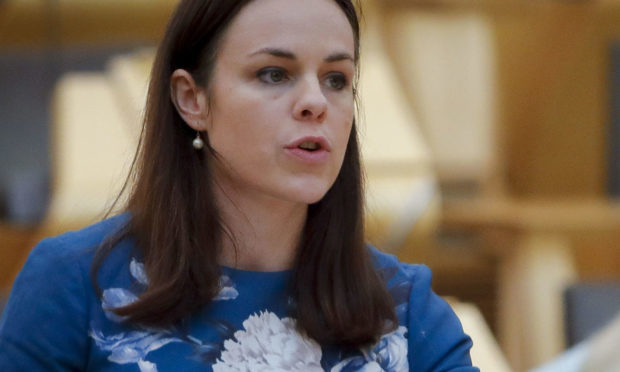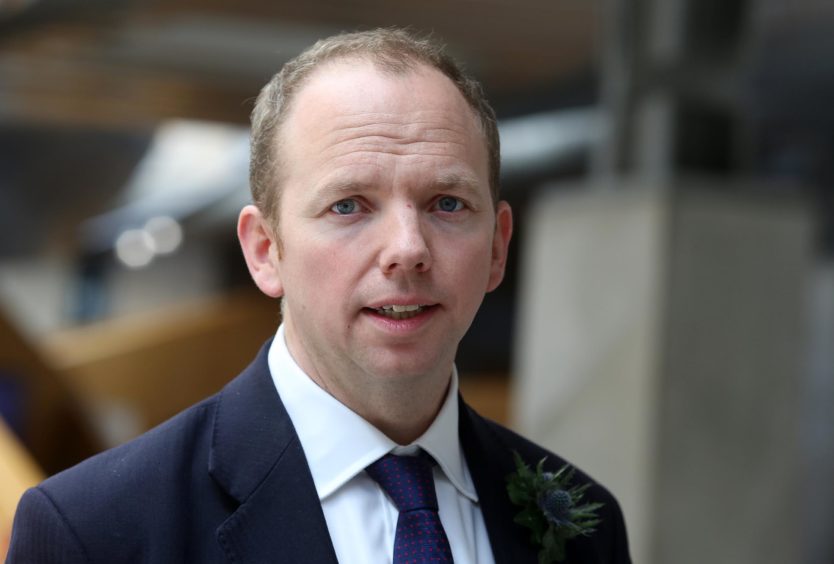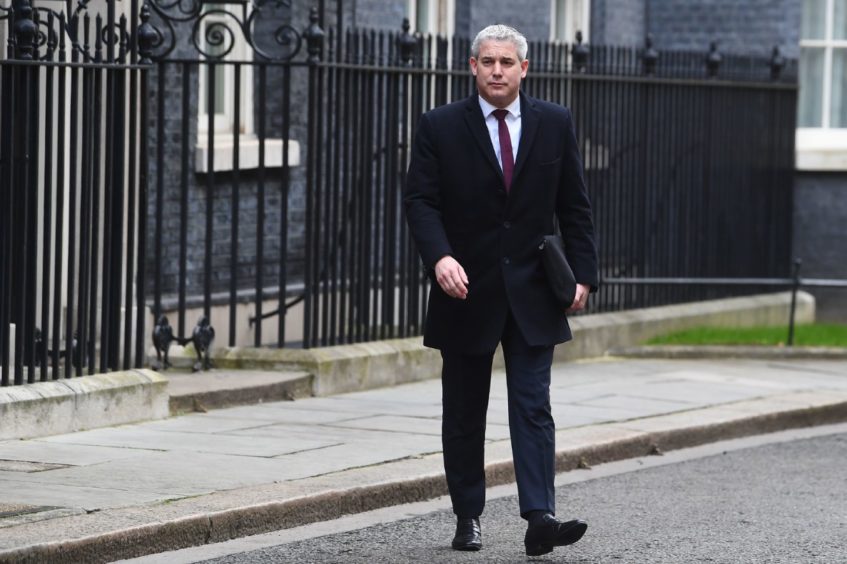With the Scottish Government demanding new borrowing powers to boost its rescue package for the economy and help plug a looming funding gap, we look at some of the key issues at stake.

What is the problem?
Coronavirus. The Scottish Government had to completely overhaul its spending plans for the year as a result of the pandemic.
While the goalposts are moving all of the time, the cost of the response to the virus in 2020/21 was recently forecast to be about £4 billion.
Of that, about £2.8bn is an increase in spending on Scotland’s March budget, while business rates income is due to be almost £1bn lower than expected, and a further £250 million will come from reallocated spending.
Most of the money to cover the £4bn hit, about £3.8bn, is from a rise in Holyrood’s budget, as a result of the Barnett funding formula and spending decisions in England.
However, the Scottish Government is expecting a financial shortfall running into “hundreds of millions of pounds”.
Funding promises could yet be revised down, if Westminster finds money to pay for some of its schemes by cutting money from other budgets.
And the Scottish Government’s response to the pandemic is expected to require even more money than has already been proposed, as the transport system and schools adjust to new ways of functioning, and training programmes are launched to assist the many workers who are likely to lose their jobs.
Tax income could also be lower than predicted, in both income and property taxes.
Scottish Finance Secretary Kate Forbes summed up the situation on social media: “Covid-related costs are greater than the funding we’re given.
“There are three options to resolve it: additional funding, flexibilities on the fiscal rules or cuts elsewhere.
“The first is unlikely, the last is unthinkable, so the second must be delivered.”
Covid-related costs are greater than the funding we're given. There are three options to resolve it: additional funding, flexibilities on the fiscal rules or cuts elsewhere. The first is unlikely, the last is unthinkable, so the second must be delivered. https://t.co/TU14HrK6w6
— Kate Forbes MSP (@KateForbesMSP) June 26, 2020
What borrowing powers does Holyrood have already?
Following the Smith Commission, set up in the wake of the 2014 independence referendum, a new “fiscal framework” was agreed between the UK and Scottish governments to underpin further devolution of tax and welfare powers in 2016.
It included enhanced borrowing powers.
Currently, the Scottish Government can borrow up to £450m per year to fund capital investment – such as building roads, schools, hospitals or other infrastructure schemes.
And it can borrow up to £600m annually for day-to-day “resource” spending, including up to £300m to address “forecast error” (which rises to £600m if there is a Scotland-specific shock to the economy) and up to £500m for “cash management”.
Cash management relates to a situation where there is a temporary in-year excess of expenditure over income, while forecast error covers a predicament whereby predicted tax receipts do not materialise, or other income levels are not what was expected.

Are these not sufficient?
The Scottish Government insists they are not. Part of the problem, it argues, is that the power to borrow for “cash management” reasons is not required.
Ms Forbes told MSPs last month: “Our resource borrowing powers are welcome, but there are a number of specific and fundamental issues with those powers in the fiscal framework.
“For example, we are allowed to borrow £500m for cash management, which we do not need, but not for budget cover, which we do need.
“In other words, we have the right power for the wrong fiscal risk.”
The Fraser of Allander Institute has said the borrowing powers for “cash management” are unlikely to ever be required, mainly because the government can draw down as much cash as it needs from HM Treasury within its budget at 48 hours’ notice.
On the other hand, the limit on the “forecast error” trigger is too low, according to the respected thinktank.
“It has been clear for some time that the borrowing limit for forecast error is unlikely to be adequate,” it said.
“The income tax reconciliation is likely to be around £600m next year, whilst the borrowing limit of £300m is in due course supposed to also accommodate forecast errors for other devolved taxes and newly devolved social security payments.”
A review the current fiscal framework was due next year but Scotland’s Advisory Group on Economic Recovery has called for this timetable to be “accelerated”.
However, Donald Cameron from the Scottish Conservatives has argued against it.
He said that the problem was not with the fiscal framework but the government’s financial management before the pandemic, having “virtually maxed out the credit card with little left in the kitty”.
What new powers does the Scottish Government want?
On June 24 Ms Forbes wrote to Chief Treasury Secretary Stephen Barclay to formally ask for “temporary additional powers and flexibilities beyond those currently set out in the fiscal framework”.
She emphasised that “this request is not about permanently revising the existing framework. Rather, it is about enabling relatively minor flexibilities given the extraordinary pressures that the devolved governments are currently under”.
The first new power requested was the “ability to offset capital underspend against resource expenditure”.
Lockdown means that infrastructure projects are behind schedule this year, but current Treasury rules mean that an underspend in the capital budget cannot be switched to support day-to-day spending on public services.
Ms Forbes wants to be allowed to switch up to £500m of annual capital underspend to support Scotland’s response to the pandemic.
Her second request relates to “flexibility over resource borrowing”.
Specifically, the Scottish Government wants to be able to borrow up to £500m to support its coronavirus response, with the power a “substitute” for the existing power to borrow for cash management, which it does not need to use.
This would be in addition to £207m of borrowing to fund the tax reconciliation impact, as well as an extension to repayment periods to 10 years from the current arrangement of three to five years.
And a third proposal was for “greater flexibility in relation to reserve for capital”.
The idea is to be able to access more reserve money by raising the £100m limit to £220m.
The Fraser of Allander Institute said: “Whilst it is true that the sorts of flexibilities the Scottish Government seeks look on paper to be minor, they could in combination substantially increase the government’s spending power in the short term.”
How has the UK Government responded?
Boris Johnson dodged the question when he was asked about it at prime minister’s questions by SNP Westminster leader Ian Blackford on the day the that Ms Forbes’ letter was sent.
“Scotland has so far received as part of our UK campaign against coronavirus £3.8bn in Barnett consequentials, a fact that I’m sure is seldom off his lips in his discussion with SNP colleagues,” the Conservative leader said.
“We will continue to invest massively in Scotland because Scotland, like the whole of the UK, benefits from being part of the oldest and most successful political partnership in the world.”
On June 30 Ms Forbes told the BBC: “I last spoke to the Treasury on Friday and we went through the issues once again.
“Unfortunately, it keeps getting kicked into the long grass and my hope is that at some point they will deal with the issue seriously and enable us to have those powers.”
What are the politics behind the debate?

Any discussion around the devolution of powers will inevitably be viewed by some through the prism of the constitutional divide that cuts through Scotland.
Ms Forbes has denied any connection to the SNP’s drive for independence, however.
“This is not a technical debate about fiscal flexibility, and it is not a proxy debate on the constitution,” she told the parliament last month.
“It is an appeal for common sense and cross-party recognition that movement on those matters will enable us to invest, and to reject austerity.
“Failure to make progress will prove to be unthinkable for our communities, our economy and our public services.”
Support from the pro-Union Scottish Labour and Scottish Liberal Democrats for temporary flexibilities in the framework may add weight to that argument, but Mr Cameron, from the Scottish Conservatives, said the demands had to be treated with a “heavy dose of scepticism”.
However, whatever motivation is behind the request for additional powers, the UK Government will know it will have to handle the issue sensitively.
It may have little choice but to act if public support swings firmly behind a Scottish campaign for enhanced levers as the scale of the economic emergency emerges.



